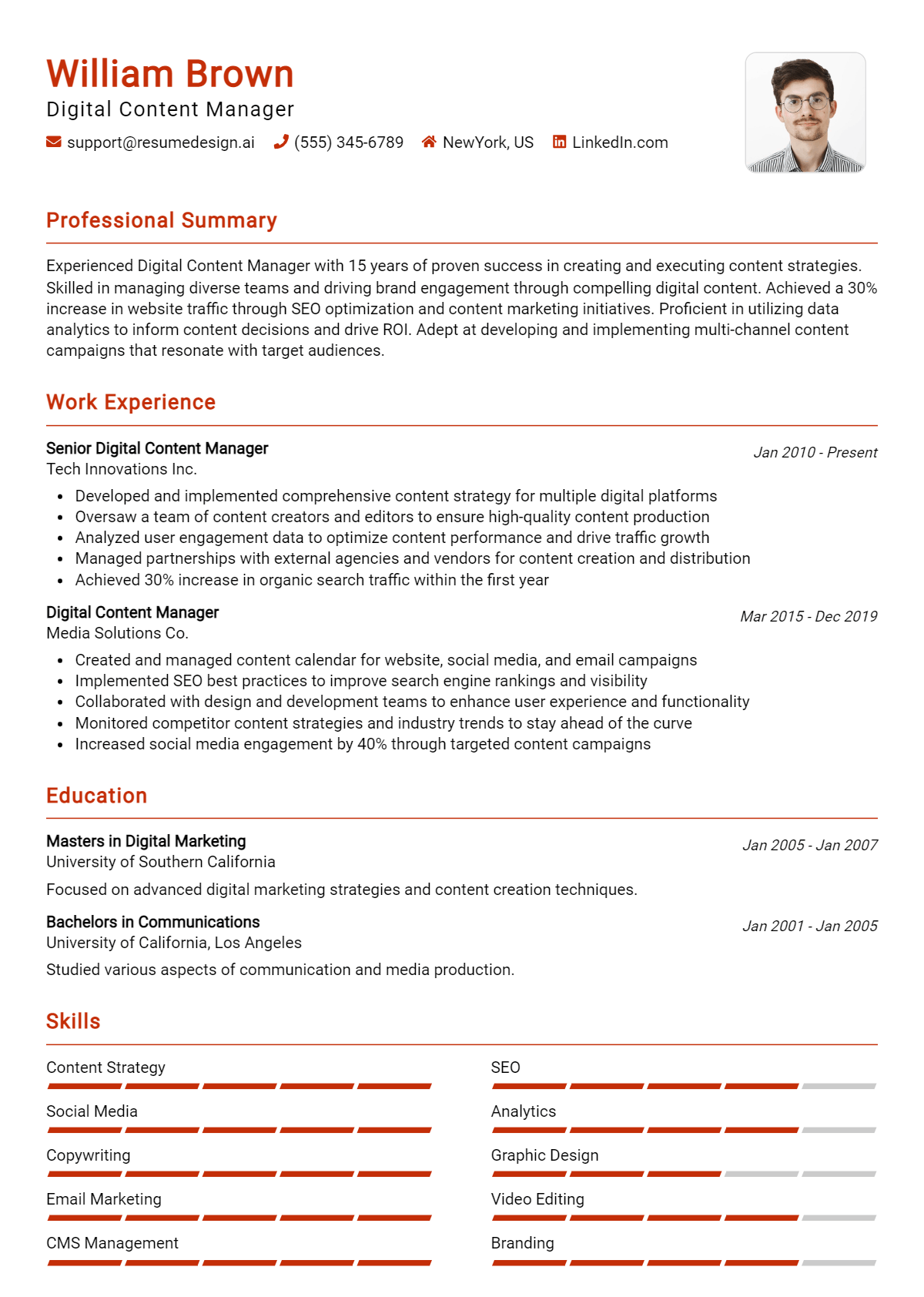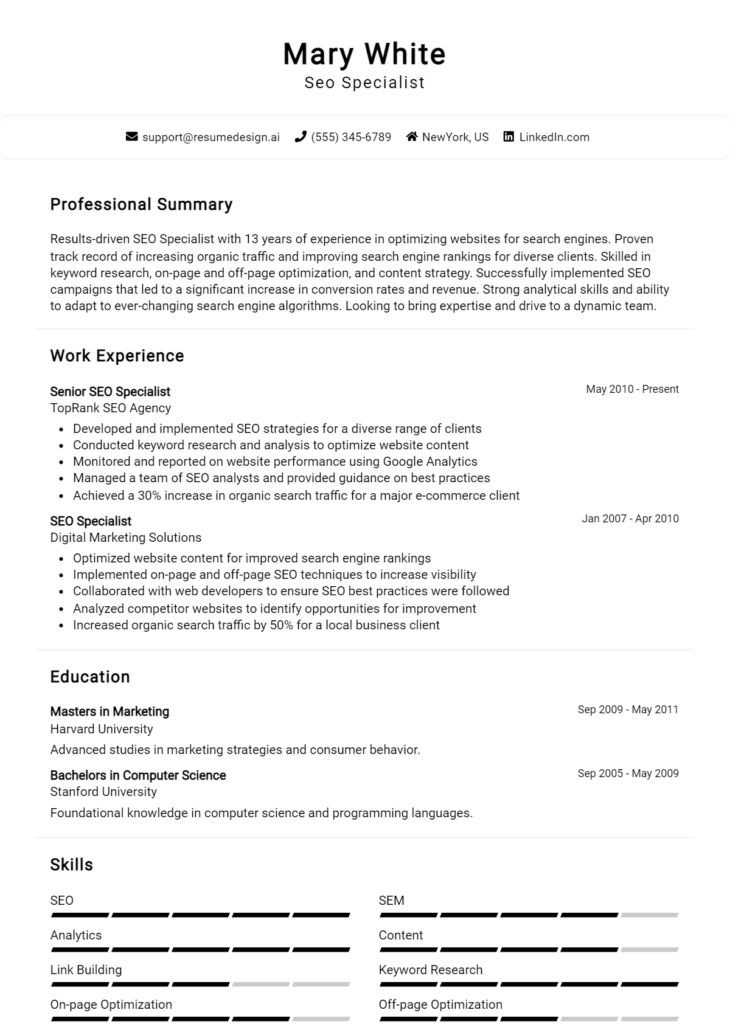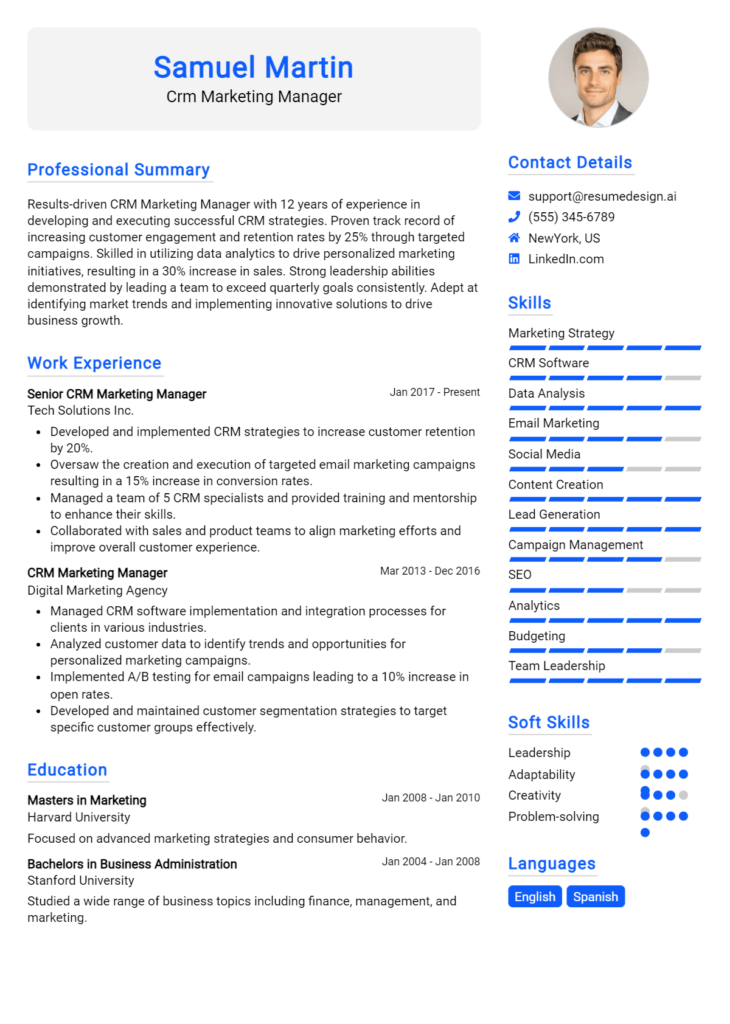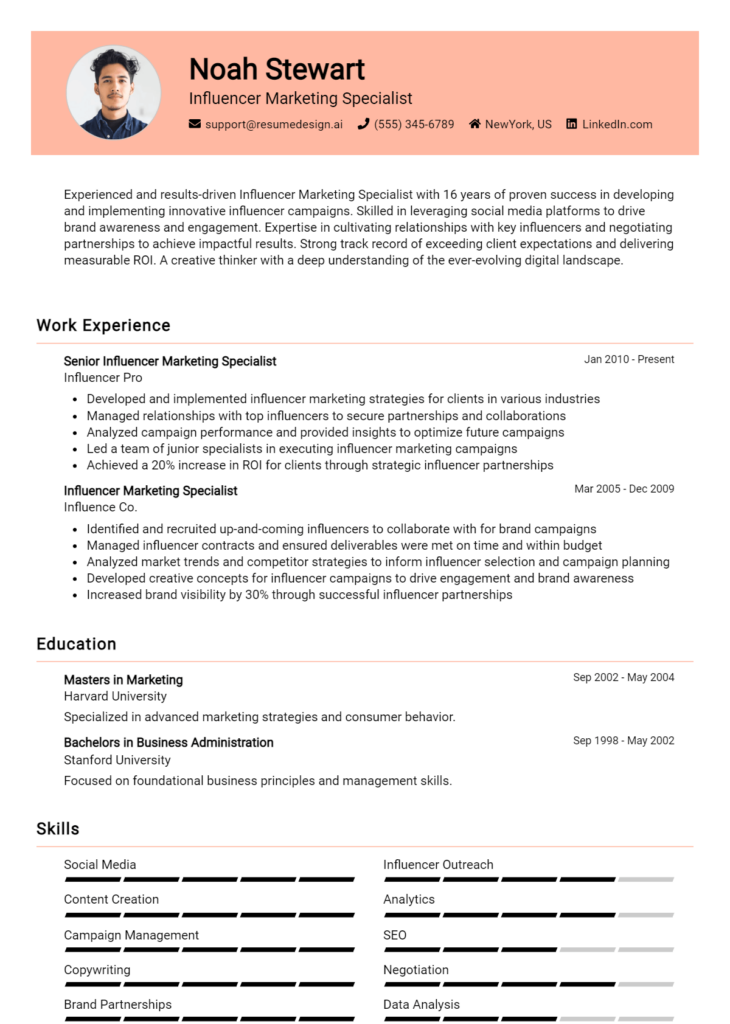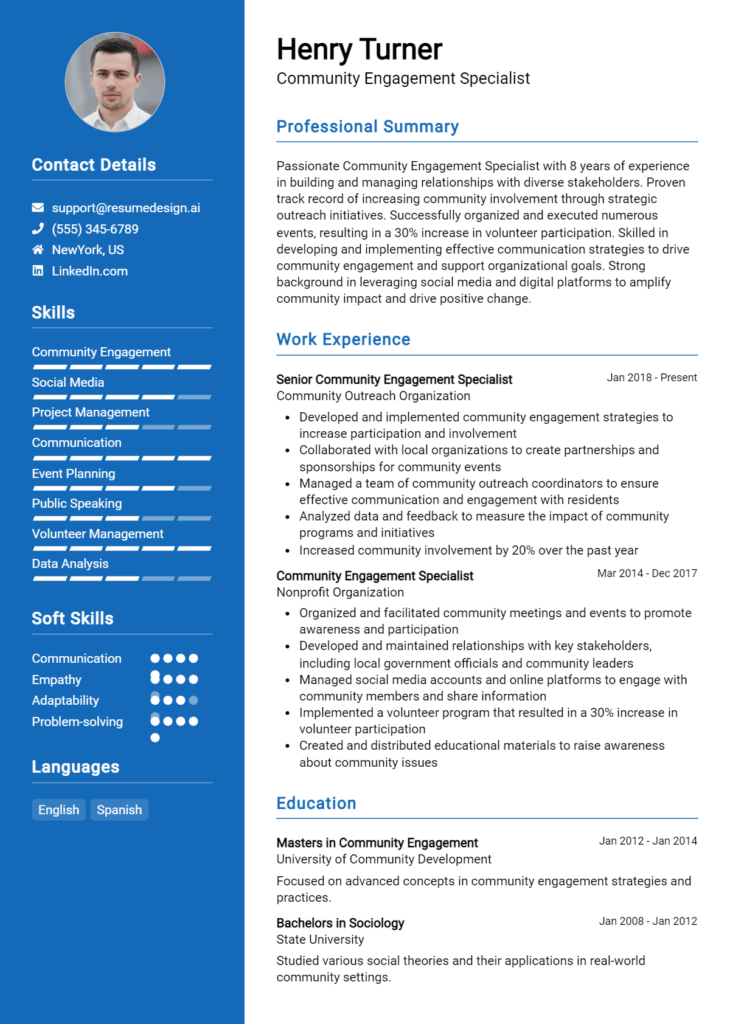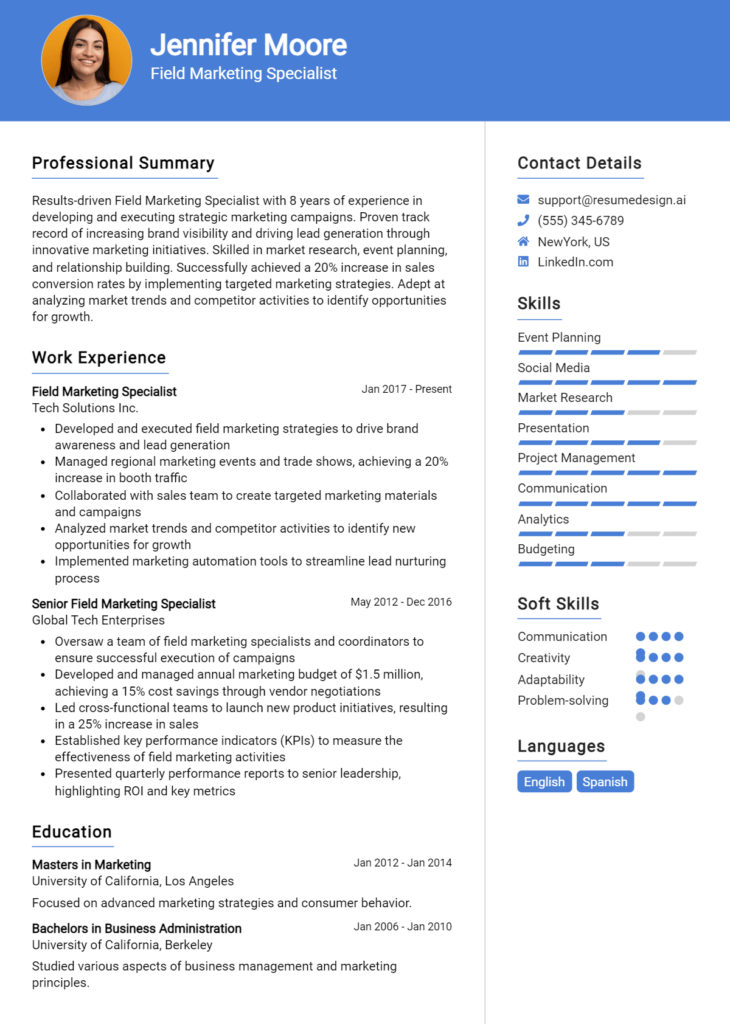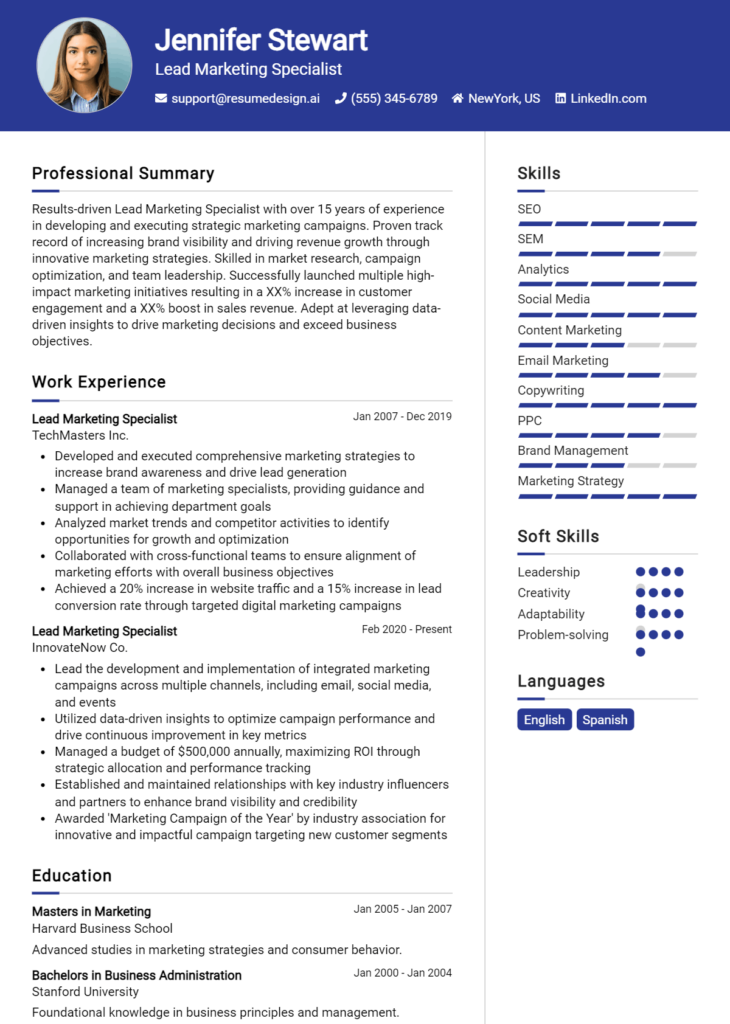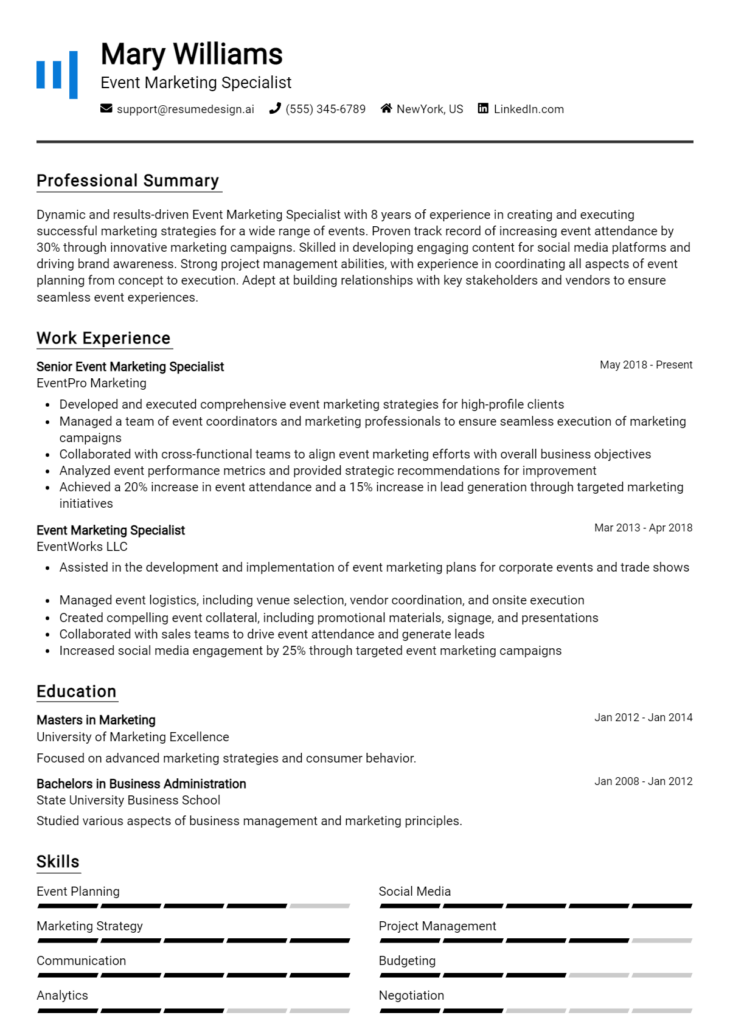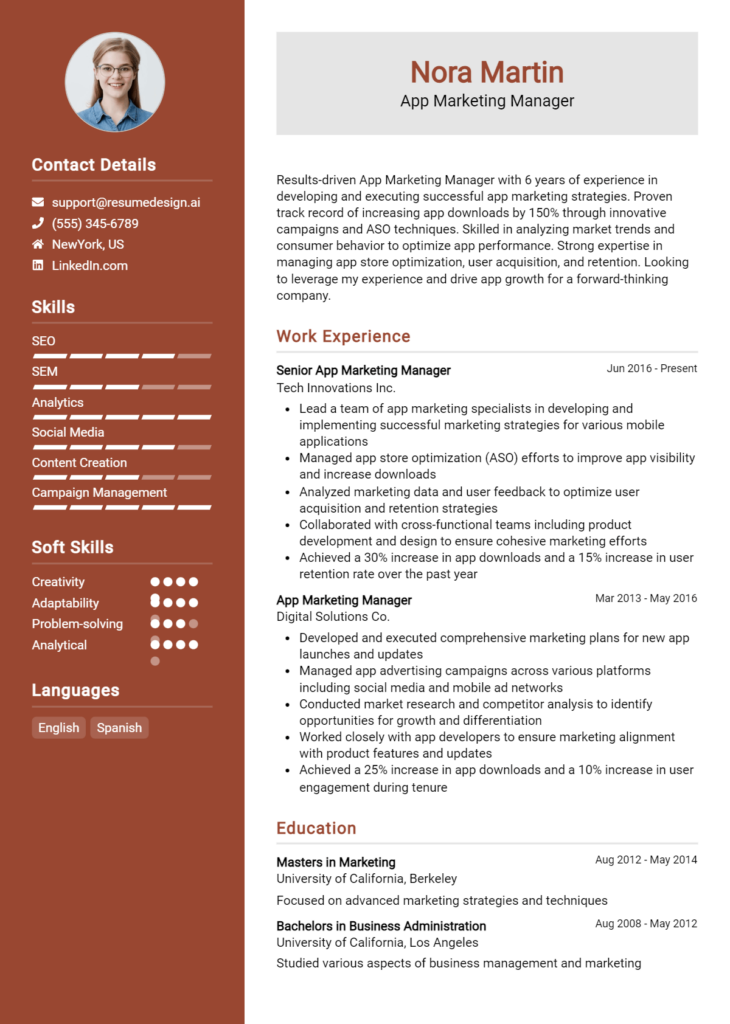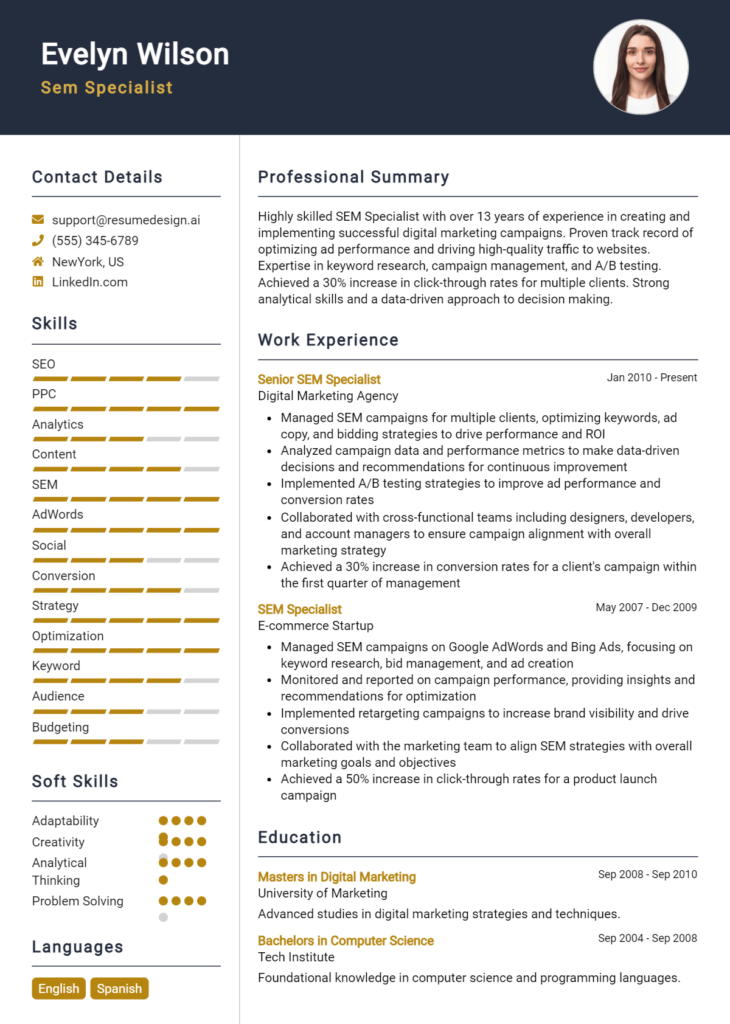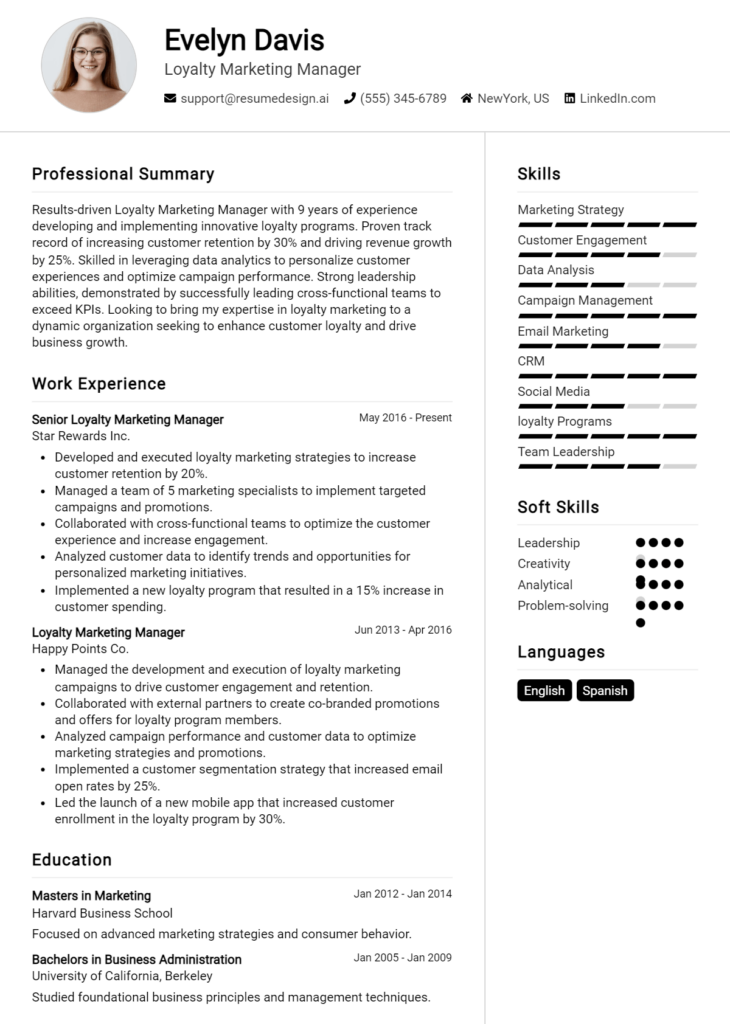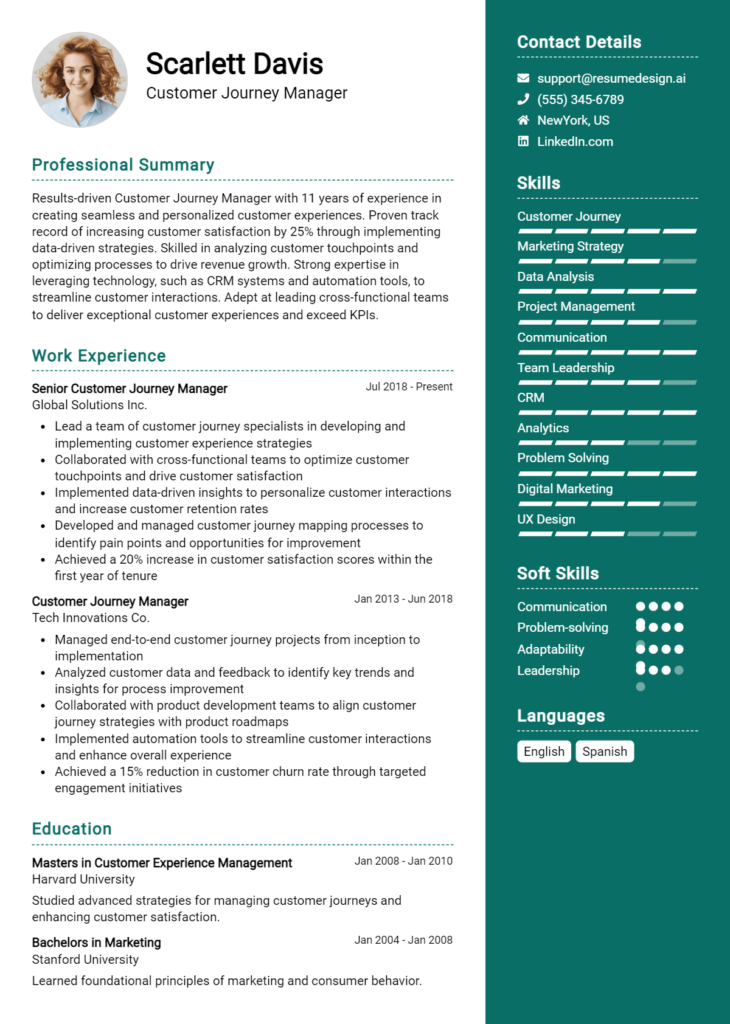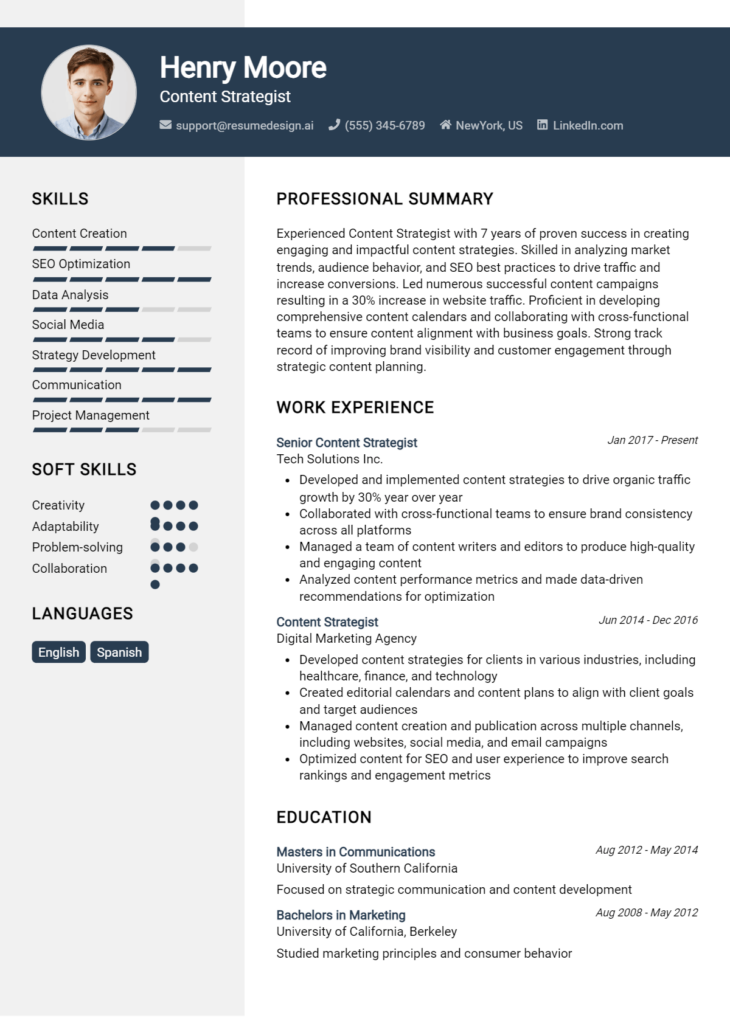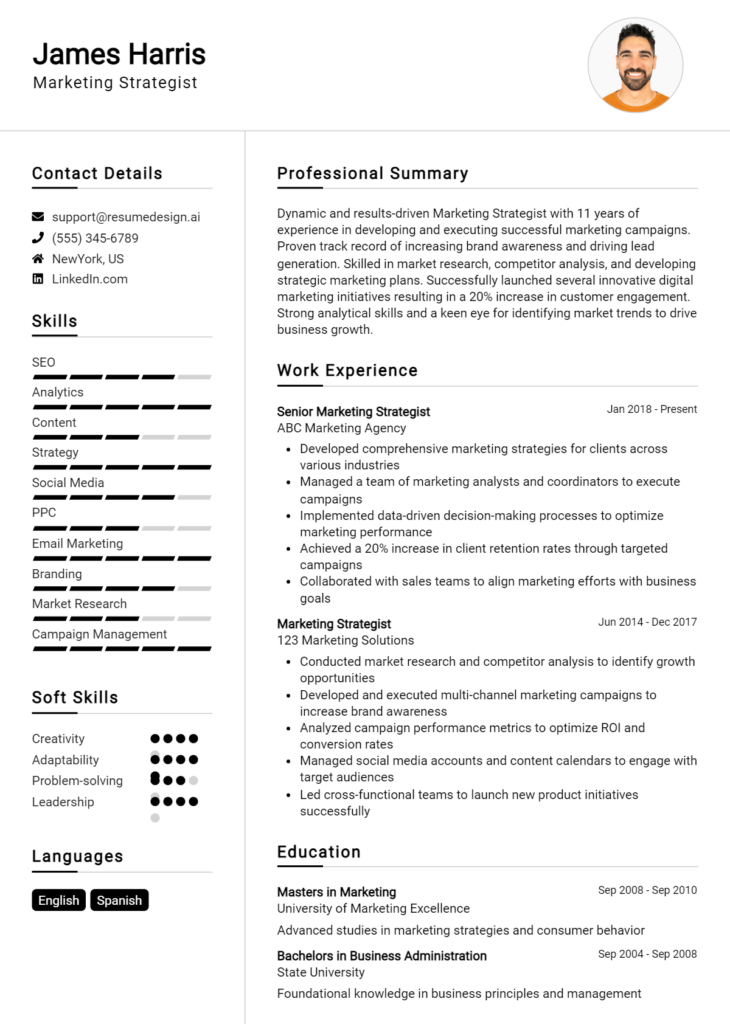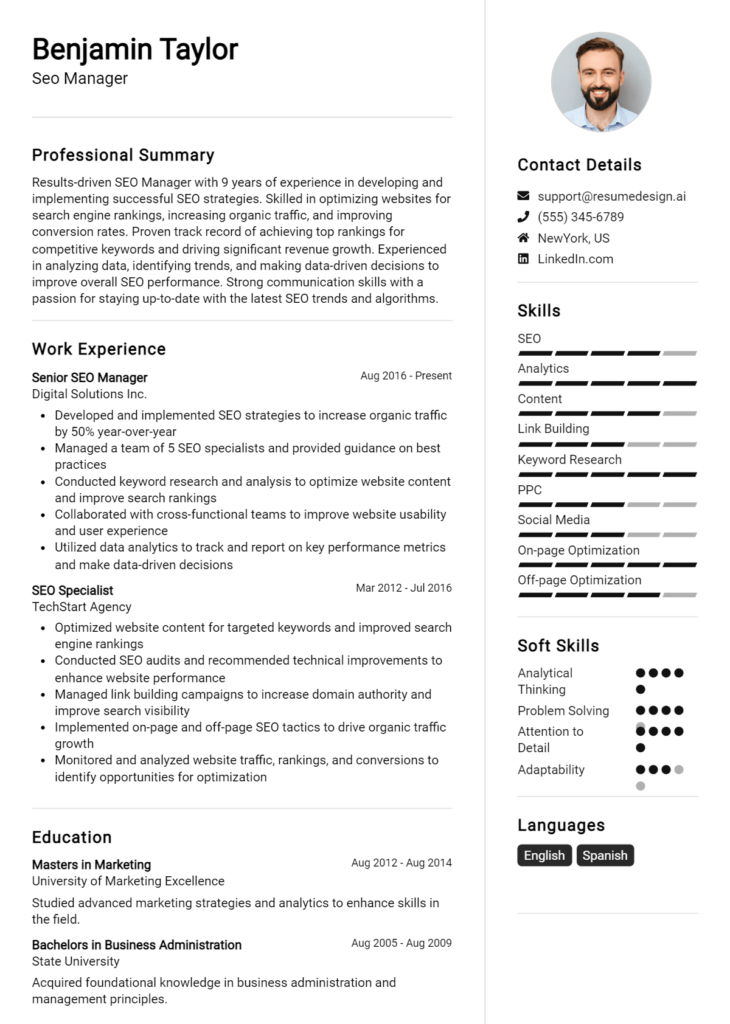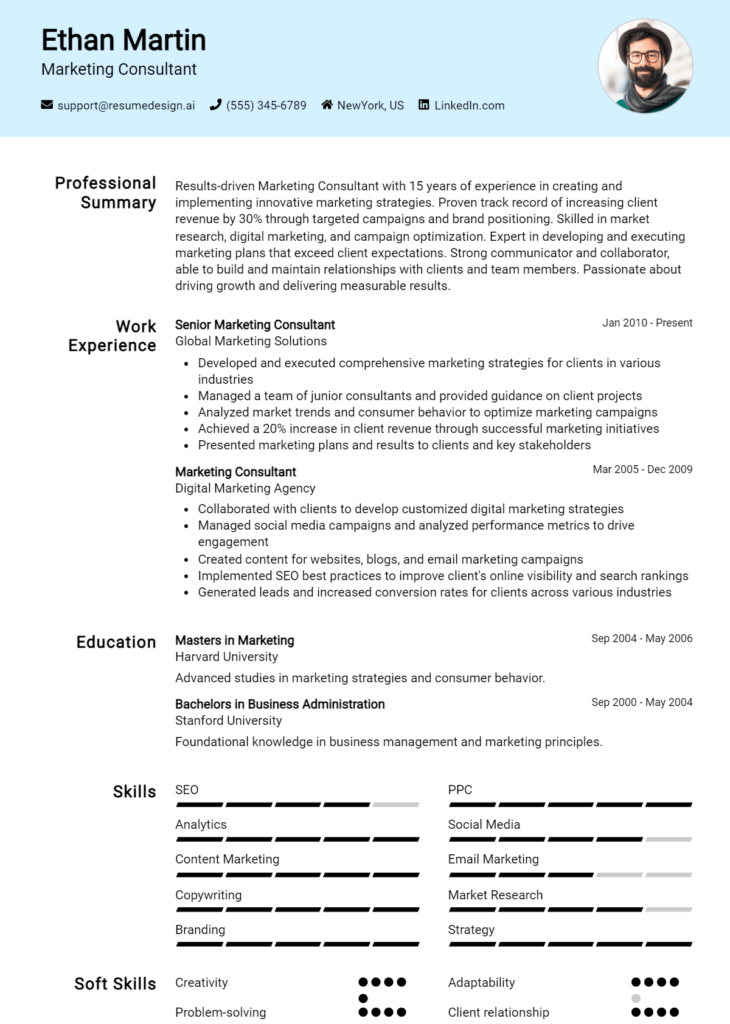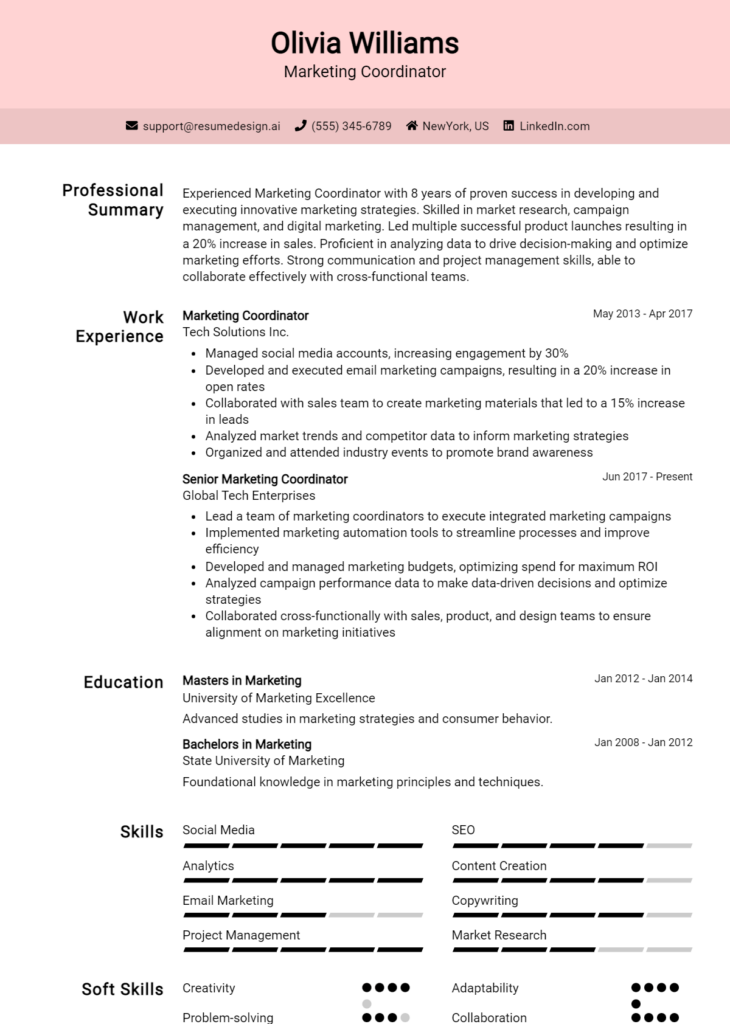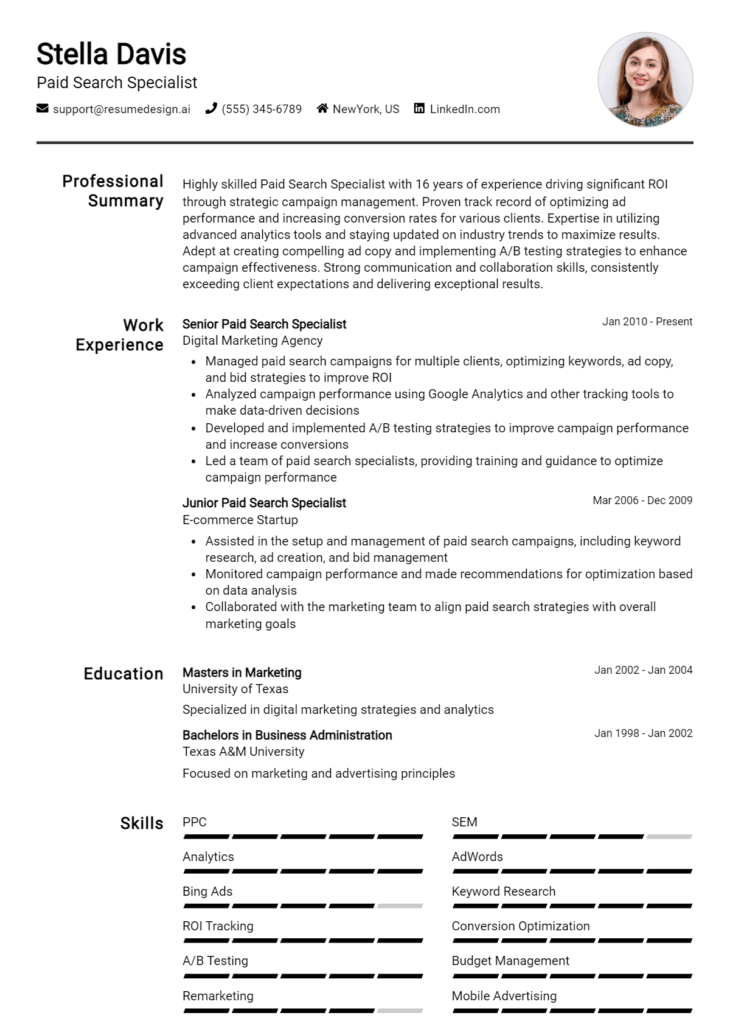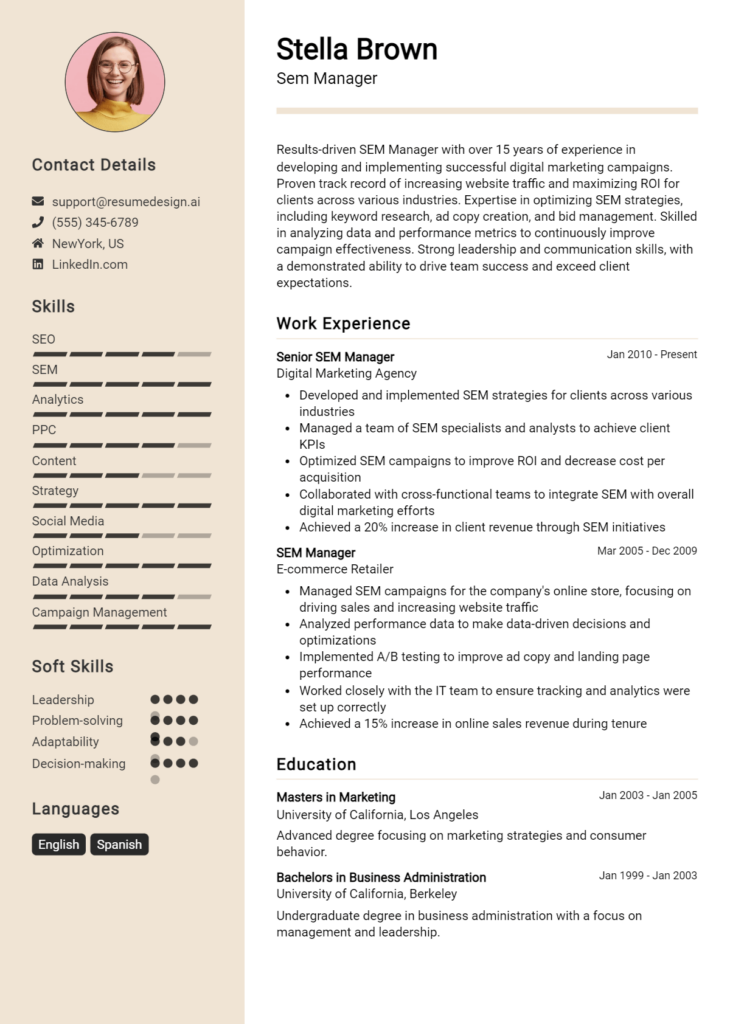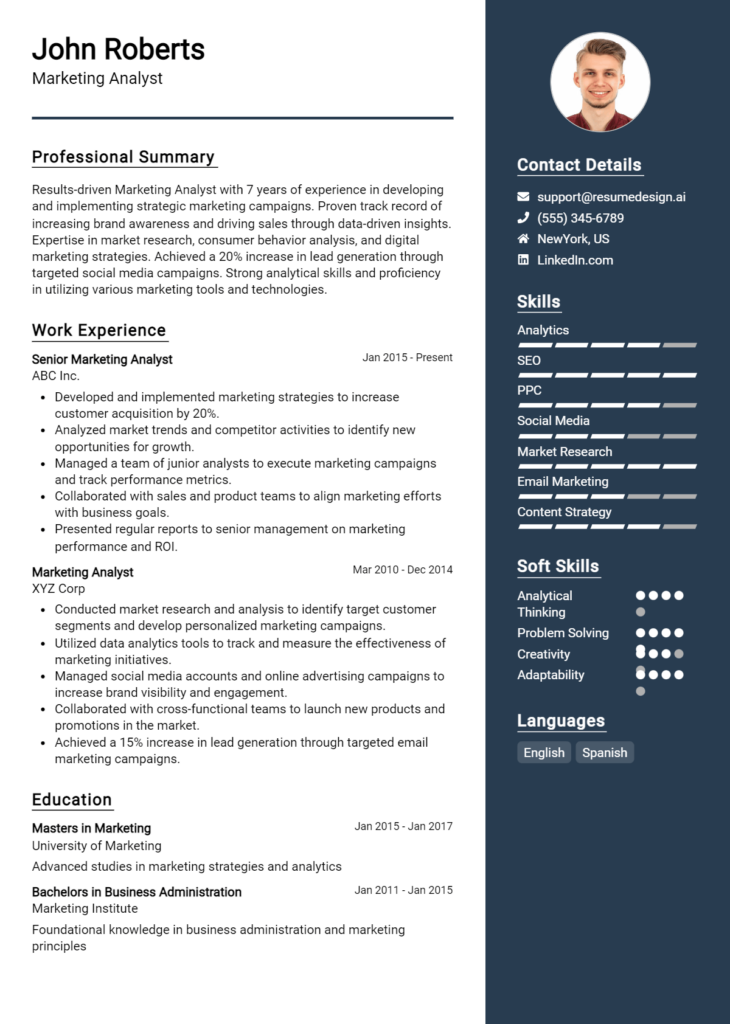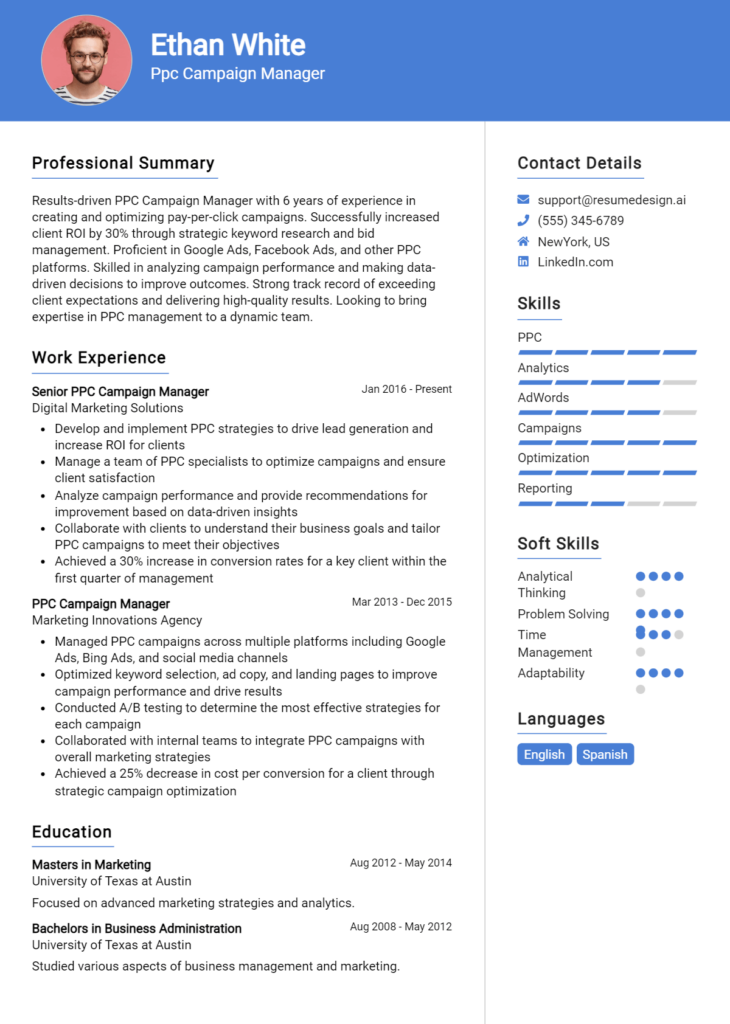Digital Content Manager Core Responsibilities
A Digital Content Manager is essential for creating, curating, and managing online content that aligns with the organization's objectives. This role requires a blend of technical proficiency, operational know-how, and advanced problem-solving skills to effectively collaborate across departments such as marketing, design, and IT. By leveraging these skills, a Digital Content Manager can enhance brand visibility and engagement. A well-structured resume showcasing these qualifications is vital for demonstrating the candidate's ability to contribute to the organization's success.
Common Responsibilities Listed on Digital Content Manager Resume
- Develop and implement content strategies that align with marketing goals.
- Create, edit, and optimize high-quality digital content for various platforms.
- Collaborate with cross-functional teams to ensure cohesive messaging.
- Analyze content performance metrics and make data-driven decisions.
- Manage content calendars and scheduling to ensure timely delivery.
- Stay updated on industry trends and best practices in digital content.
- Oversee SEO strategies to enhance online visibility.
- Conduct regular audits of existing content and recommend improvements.
- Facilitate training and support for team members on content management systems.
- Implement content governance policies and ensure compliance with brand standards.
- Manage budgets related to content projects and initiatives.
High-Level Resume Tips for Digital Content Manager Professionals
In today's competitive job market, a well-crafted resume is crucial for Digital Content Manager professionals aiming to make a significant first impression on potential employers. Your resume serves as a showcase of your skills, achievements, and unique value proposition, making it essential to thoughtfully present your expertise in digital content management. A strong resume not only highlights your ability to create compelling content and drive engagement but also reflects your understanding of the industry's evolving landscape. This guide will provide practical and actionable resume tips specifically tailored for Digital Content Manager professionals, ensuring that your application stands out in a crowded field.
Top Resume Tips for Digital Content Manager Professionals
- Tailor your resume to the job description by incorporating relevant keywords and phrases that highlight your suitability for the role.
- Showcase your relevant experience by detailing your previous roles, focusing on specific responsibilities and projects that align with digital content management.
- Quantify your achievements; use metrics to demonstrate the impact of your work, such as increased engagement rates, website traffic, or conversion rates.
- Highlight industry-specific skills, such as SEO, content strategy, analytics tools, and social media management, to showcase your expertise.
- Include links to your portfolio or examples of your work to provide tangible evidence of your capabilities and creativity.
- Utilize a clean and professional format that enhances readability; avoid clutter and ensure your layout is visually appealing.
- Incorporate a strong summary statement at the top of your resume that encapsulates your professional brand and career objectives.
- Demonstrate your adaptability and willingness to learn by mentioning any relevant certifications, training, or continuous education in digital content management.
- Consider including testimonials or endorsements from previous employers or clients that speak to your skills and contributions.
By implementing these tips, you can significantly enhance your resume and increase your chances of landing a job in the Digital Content Manager field. A well-structured and targeted resume not only highlights your qualifications but also conveys your passion for digital content, making you a compelling candidate for potential employers.
Why Resume Headlines & Titles are Important for Digital Content Manager
In the competitive landscape of digital content management, a well-crafted resume headline or title is essential for making a lasting first impression. For a Digital Content Manager, this headline serves as a crucial summary that encapsulates the candidate's key qualifications, skills, and expertise in one impactful phrase. A strong headline grabs the attention of hiring managers and sets the tone for the rest of the resume, effectively showcasing the candidate's fit for the role. It should be concise, relevant, and directly aligned with the job being applied for, allowing the candidate to stand out in a crowded applicant pool.
Best Practices for Crafting Resume Headlines for Digital Content Manager
- Keep it concise: Aim for a headline that is no more than 10-12 words.
- Be role-specific: Tailor the headline to reflect the specific position you are applying for.
- Highlight key skills: Include relevant skills that are essential for a Digital Content Manager.
- Use action-oriented language: Start with strong verbs to convey dynamism and impact.
- Incorporate industry keywords: Use terminology that resonates within the digital content space.
- Showcase achievements: If possible, include metrics or accomplishments that demonstrate your success.
- Avoid jargon: Use clear and straightforward language that can be easily understood.
- Make it engaging: Ensure the headline piques interest and invites further reading.
Example Resume Headlines for Digital Content Manager
Strong Resume Headlines
Dynamic Digital Content Manager with 5+ Years of Proven Success in Driving Engagement.
Results-Driven Content Strategist Specializing in SEO and Brand Storytelling.
Creative Digital Content Expert with a Track Record of Boosting Traffic by 150%.
Innovative Content Manager with Experience in Multi-Channel Campaigns and Analytics.
Weak Resume Headlines
Looking for a Job in Digital Marketing.
Content Manager Seeking Opportunities.
Strong resume headlines are effective because they immediately convey the candidate's value proposition and relevance to the role. They encapsulate vital information in a captivating manner, encouraging hiring managers to read further. In contrast, weak headlines lack specificity and fail to highlight unique qualifications or strengths, making them forgettable in a sea of applications. By avoiding generic phrases and focusing on impactful language, candidates can significantly enhance their chances of standing out in the hiring process.
Writing an Exceptional Digital Content Manager Resume Summary
A resume summary is a crucial component for a Digital Content Manager as it serves as the first impression a hiring manager will have of a candidate. An exceptional summary quickly captures attention by showcasing key skills, relevant experience, and notable accomplishments that align with the specific demands of the job role. This brief yet impactful section should succinctly convey the candidate's value, making it clear why they are the ideal fit for the position. A tailored resume summary not only highlights the candidate's qualifications but also demonstrates their understanding of the job requirements and the organization's goals.
Best Practices for Writing a Digital Content Manager Resume Summary
- Quantify Achievements: Use specific numbers to demonstrate the impact of your work, such as increased website traffic or engagement rates.
- Focus on Relevant Skills: Highlight skills that are directly related to digital content management, such as SEO, content strategy, and analytics.
- Tailor the Summary: Customize your summary for each job application, ensuring it aligns with the job description and requirements.
- Use Strong Action Verbs: Start sentences with dynamic verbs to convey a sense of accomplishment and initiative.
- Keep it Concise: Limit your summary to 2-4 sentences to maintain clarity and make a strong impact.
- Showcase Industry Knowledge: Demonstrate familiarity with current trends and technologies in digital content management.
- Highlight Leadership Experience: If applicable, mention any experience in leading teams or projects to emphasize your capability in a managerial role.
- Include Keywords: Incorporate relevant keywords from the job posting to enhance visibility in applicant tracking systems.
Example Digital Content Manager Resume Summaries
Strong Resume Summaries
Results-driven Digital Content Manager with over 5 years of experience in developing and executing content strategies that boosted organic search traffic by 150% over 12 months. Proficient in SEO, analytics, and social media marketing, with a proven track record of increasing audience engagement through tailored content.
Creative Digital Content Manager skilled in leading cross-functional teams to create compelling narratives that resonate with diverse audiences. Successfully managed a content marketing campaign that resulted in a 40% increase in lead generation within six months.
Dynamic Digital Content Manager with expertise in data-driven content creation and a passion for storytelling. Achieved a 30% growth in social media following and a 25% improvement in user engagement by implementing innovative content strategies.
Weak Resume Summaries
Experienced content manager looking for a new opportunity in digital marketing. Good at creating content.
Digital Content Manager with some experience in content strategy and social media. Seeking to contribute to a team.
The strong resume summaries stand out due to their specific achievements, quantifiable results, and relevant skills that directly relate to the Digital Content Manager role. They provide clear evidence of the candidate's impact in previous positions, showcasing their ability to deliver results. In contrast, the weak summaries lack detail and specificity, failing to convey any measurable outcomes or unique qualifications, which diminishes their effectiveness in capturing the hiring manager's attention.
Work Experience Section for Digital Content Manager Resume
The work experience section of a Digital Content Manager resume is vital as it provides a comprehensive overview of the candidate's professional journey and highlights their technical skills, leadership abilities, and capacity to deliver high-quality content products. This section serves as a platform to showcase how past roles have equipped the candidate with the necessary expertise to excel in content strategy, digital marketing, and team management. Quantifying achievements—such as increases in engagement metrics, successful project completions, or revenue growth—demonstrates the candidate's impact in previous positions. Moreover, aligning work experience with industry standards ensures that the candidate resonates with potential employers looking for specific skill sets and capabilities.
Best Practices for Digital Content Manager Work Experience
- Highlight specific technical skills related to content management systems, SEO, and analytics tools.
- Utilize quantifiable results to demonstrate the impact of your work, such as increased web traffic or engagement rates.
- Emphasize leadership roles and team collaboration efforts, showcasing how you managed or mentored others.
- Align your experience with industry standards by using relevant terminology and focusing on current digital trends.
- Include a variety of content types you’ve managed, such as blogs, social media, or video content.
- Tailor your bullet points to specific job descriptions to ensure relevance to the position you’re applying for.
- Use action verbs to convey your accomplishments dynamically and engagingly.
- Keep the format consistent and easy to read, ensuring that key achievements stand out.
Example Work Experiences for Digital Content Manager
Strong Experiences
- Led a team of 10 content creators and strategists to develop a comprehensive content calendar, resulting in a 30% increase in organic traffic over six months.
- Implemented an SEO strategy that improved website ranking from page 5 to page 1 for targeted keywords, driving an additional 50,000 monthly visitors.
- Collaborated with cross-functional teams to launch a multi-channel marketing campaign that generated $200,000 in revenue within the first quarter.
- Developed and executed a social media strategy that increased follower engagement by 150% and expanded brand reach across platforms.
Weak Experiences
- Worked on various projects related to content without specifying outcomes or responsibilities.
- Assisted in content creation and management tasks, but did not highlight specific achievements or technical skills.
- Participated in team meetings and brainstorming sessions but lacked details on contributions or successes.
- Responsible for posting content on social media without quantifying engagement or impact.
The examples provided are considered strong because they clearly outline specific achievements and the quantifiable impact the candidate had on their organization. They showcase technical expertise and effective collaboration, which are essential for a Digital Content Manager. In contrast, the weak experiences lack specificity and measurable outcomes, making it difficult for potential employers to gauge the candidate's true contributions and capabilities. Strong examples effectively communicate the candidate's value, while weak examples fail to provide a compelling narrative.
Education and Certifications Section for Digital Content Manager Resume
The education and certifications section of a Digital Content Manager resume is crucial for establishing the candidate's foundational knowledge and expertise in the field. This section highlights the academic background, relevant industry certifications, and ongoing learning efforts that align with the demands of the role. By providing details on relevant coursework and specialized training, candidates can significantly enhance their credibility and demonstrate their commitment to staying updated with industry trends and practices. In a competitive job market, showcasing this information effectively can set a candidate apart from others and underscore their suitability for the position.
Best Practices for Digital Content Manager Education and Certifications
- Prioritize relevance: Focus on degrees and certifications that directly relate to digital content management, marketing, or communications.
- Include advanced degrees: If applicable, highlight any master's degrees or specialized certifications that demonstrate a higher level of expertise.
- Detail relevant coursework: Mention specific courses that align with digital content strategies, SEO, analytics, and content creation.
- Highlight industry-recognized certifications: Include certifications from reputable organizations such as HubSpot, Google, or the Content Marketing Institute.
- Stay current: Ensure that all certifications and training are up-to-date, reflecting the latest industry standards and practices.
- Showcase ongoing education: Mention any relevant workshops, webinars, or online courses to illustrate a commitment to continuous learning.
- Be concise and clear: Use bullet points for easy readability and to ensure key information stands out.
- Use consistent formatting: Maintain a uniform style throughout this section for a polished and professional appearance.
Example Education and Certifications for Digital Content Manager
Strong Examples
- Bachelor of Arts in Communications, University of California, Los Angeles (UCLA)
- Certified Content Marketing Specialist, DigitalMarketer
- Google Analytics Individual Qualification (GAIQ)
- Master's in Digital Marketing, Columbia University
Weak Examples
- Associate's Degree in General Studies, Local Community College
- Certification in Microsoft Office Suite (2005)
- High School Diploma, Anytown High School
- Outdated SEO Certification, SEO Training Institute (2010)
The strong examples are considered relevant because they directly reflect qualifications that are essential for a Digital Content Manager, showcasing both a solid educational foundation and recognized certifications that align with current industry standards. In contrast, the weak examples lack relevance and fail to demonstrate a connection to the specific skills and knowledge needed for the role. Outdated or generic qualifications do not provide the same level of credibility or alignment with the demands of modern digital content management.
Top Skills & Keywords for Digital Content Manager Resume
A well-crafted resume is essential for a Digital Content Manager, as it serves as a first impression to potential employers. Highlighting the right skills can set candidates apart in a competitive job market, demonstrating their ability to create, manage, and optimize engaging content across various digital platforms. Skills reflect not only a candidate's technical abilities but also their interpersonal qualities, which are crucial for collaboration and communication within a team. By carefully selecting and showcasing relevant skills in a resume, Digital Content Managers can effectively convey their qualifications and readiness to tackle the challenges of the role.
Top Hard & Soft Skills for Digital Content Manager
Soft Skills
- Creativity
- Strong communication skills
- Team collaboration
- Adaptability
- Problem-solving
- Attention to detail
- Time management
- Leadership
- Critical thinking
- Empathy
Hard Skills
- SEO optimization
- Content management systems (CMS)
- Social media marketing
- Data analytics and reporting
- HTML/CSS basics
- Graphic design tools (e.g., Adobe Creative Suite)
- Copywriting and editing
- Project management software (e.g., Asana, Trello)
- Email marketing platforms
- Knowledge of digital marketing trends
Developing a comprehensive understanding of these skills and effectively showcasing relevant work experience will significantly enhance the visibility and appeal of a Digital Content Manager's resume.
Stand Out with a Winning Digital Content Manager Cover Letter
As a passionate and results-driven Digital Content Manager with over five years of experience in creating, optimizing, and managing content across various digital platforms, I am excited to apply for the position at [Company Name]. My background in digital marketing, combined with my expertise in content strategy and analytics, positions me uniquely to contribute to your team. I have a proven track record of driving engagement and increasing brand visibility through innovative content solutions that resonate with target audiences.
In my previous role at [Previous Company], I successfully led a team of content creators to develop and implement a comprehensive content strategy that increased organic traffic by 40% within six months. My approach involves thorough market research and audience analysis to ensure that all content aligns with business objectives and meets user needs. Additionally, I am well-versed in SEO best practices and utilize analytics tools to track performance and make data-driven decisions that enhance content effectiveness.
Collaboration is key in my work, and I thrive in cross-functional teams where ideas and creativity can flow freely. By fostering strong relationships with designers, marketers, and stakeholders, I ensure that all content not only meets quality standards but also reflects the brand's voice and mission. I am particularly drawn to [Company Name] because of your commitment to innovation and excellence, and I am eager to bring my strategic vision and creative flair to help elevate your digital presence further.
I look forward to the opportunity to discuss how my skills and experiences align with the goals of [Company Name]. Thank you for considering my application. I am eager to contribute to your team and help drive your digital content initiatives forward.
Common Mistakes to Avoid in a Digital Content Manager Resume
When crafting a resume for a Digital Content Manager position, it's essential to present a compelling and professional image that accurately reflects your skills and experience. However, many candidates make common mistakes that can undermine their chances of landing an interview. Understanding these pitfalls can help you create a more effective resume that stands out to hiring managers. Here are some common mistakes to avoid:
Lack of Keywords: Failing to incorporate relevant keywords from the job description can lead to your resume being overlooked by applicant tracking systems (ATS) and hiring managers. Tailor your resume to match the specific language used in the job posting.
Generic Objective Statements: Using a one-size-fits-all objective statement does little to showcase your value. Instead, craft a personalized summary that highlights your unique qualifications and career goals related to the Digital Content Manager role.
Overloading with Jargon: While industry-specific terminology can demonstrate expertise, overusing jargon can make your resume hard to read. Aim for clarity and ensure that your accomplishments are easily understood by a diverse audience.
Neglecting Metrics and Results: Failing to quantify your achievements can leave hiring managers questioning your impact. Use specific numbers and metrics to showcase the results of your content strategies, such as increased engagement rates or improved conversion metrics.
Ignoring Formatting and Design: A cluttered or poorly formatted resume can detract from your qualifications. Use clear headings, bullet points, and consistent fonts to create a visually appealing document that is easy to navigate.
Including Irrelevant Experience: Listing every job you’ve ever had can dilute your focus. Tailor your work experience to highlight positions and achievements that are directly relevant to the Digital Content Manager role.
Omitting Soft Skills: While technical skills are crucial, neglecting to mention your soft skills—such as communication, teamwork, and adaptability—can be a missed opportunity. These skills are often just as important in collaboration and project management.
Failure to Proofread: Spelling and grammatical errors can undermine your professionalism. Always proofread your resume multiple times and consider asking someone else to review it to catch any mistakes you may have missed.
Conclusion
As we explored the essential skills and responsibilities of a Digital Content Manager, it’s clear that this role is pivotal in driving online engagement and brand visibility. The position requires a blend of creativity, analytical thinking, and proficiency with various digital tools. Key points discussed include the importance of creating compelling content strategies, understanding SEO practices, leveraging social media platforms, and analyzing performance metrics to refine content effectiveness.
In conclusion, as the digital landscape continues to evolve, so too should your resume. An effective Digital Content Manager resume should highlight your skills in content creation, management, and analytics, showcasing your ability to adapt and thrive in a fast-paced environment.
Now is the time to take action! Review your Digital Content Manager resume and ensure it reflects your expertise and achievements. Utilize the available resources to enhance your application materials:
- Explore a variety of resume templates that can help you design a professional resume that stands out.
- Try out the resume builder for an intuitive way to create or update your resume.
- Check out resume examples for inspiration on how to effectively present your skills and experiences.
- Don’t forget to craft a compelling cover letter using our cover letter templates to complement your resume.
Take the next step in your career by ensuring your application materials are as polished and impactful as the digital content you create!

